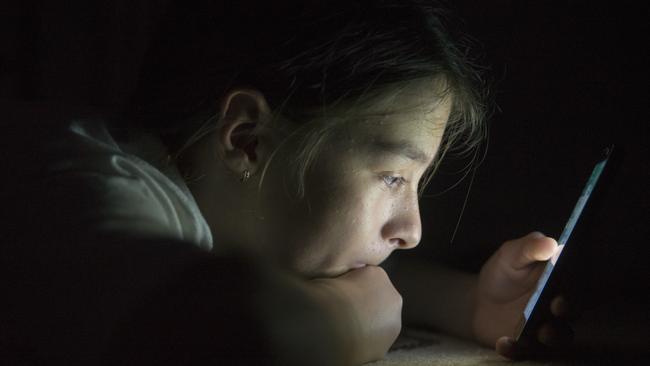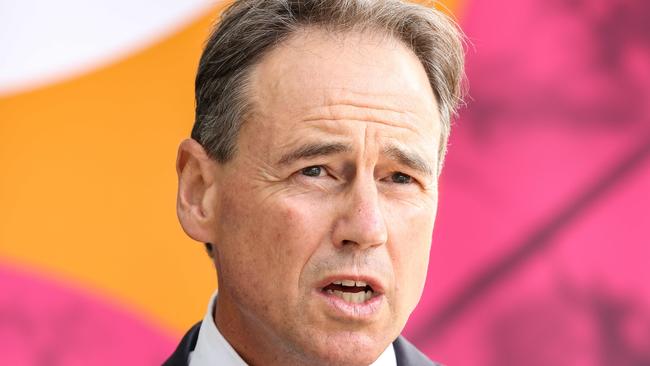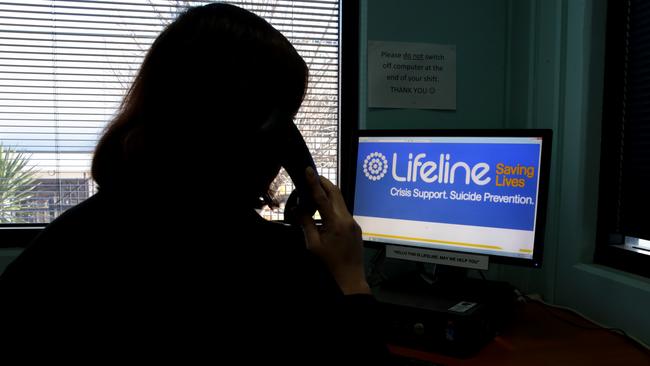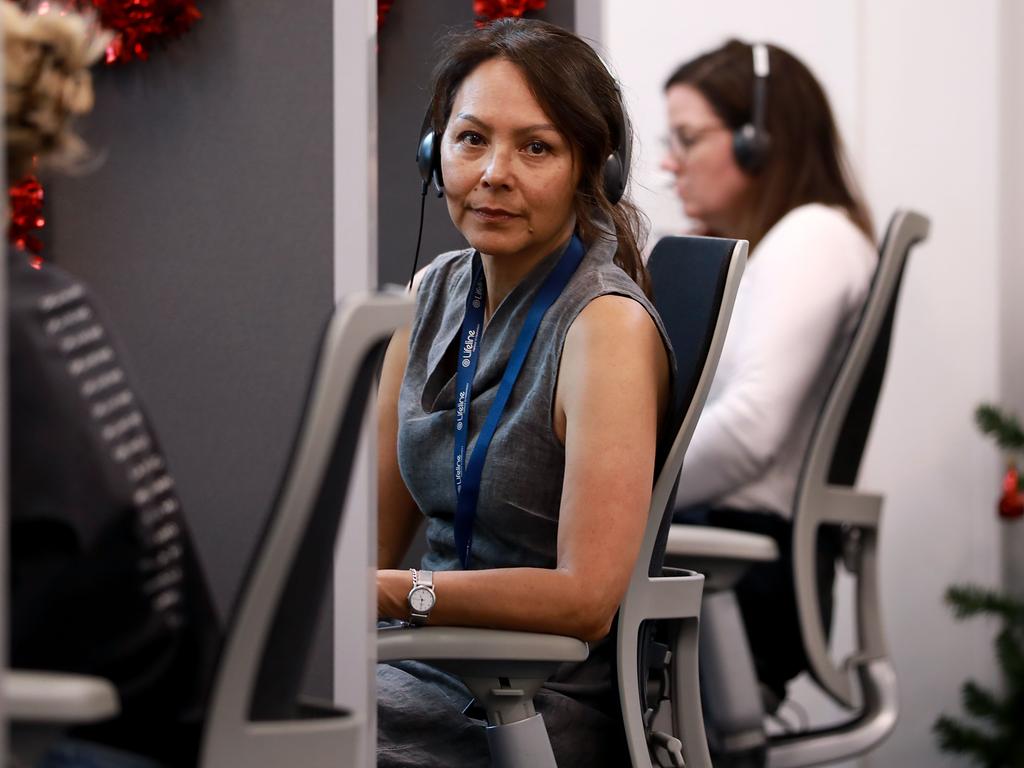Lifeline’s text service goes 24/7 after $1.5m cash injection from federal government
Vulnerable Australians hesitant to pick up the phone can now get help 24 hours a day via text after government injects $1.5m into Lifeline.

Vulnerable Australians will be able to get help 24 hours a day via text, after Lifeline received a $1.5m cash injection from the federal government in a move that is expected to particularly benefit young women.
Federal Health Minister Greg Hunt and Suicide Prevention Minister David Coleman announced the new round of funding on Monday, in a bid to ramp up mental health support during the pandemic.
The funding and service expansion arrives after Lifeline has received calls and digital contact in record numbers, recording 3726 calls on New Year’s Day and 609 digital contacts – including text and web chat – in a single night.
Mr Hunt said the government was aware the demand for digital mental health services had grown tremendously and data showed digital services are crucial.
“The expansion of the text service is backed by data showing that it is the preferred channel for high risk members of the community including young people, those experiencing family and domestic violence, and Aboriginal and Torres Strait Islander people,” he said.

Lifeline chief executive Colin Seery said when the pandemic struck, his team “quickly found out we really needed to expand the service as quickly as we could”.
“We found that particularly in lockdown situations during Covid that domestic violence calls certainly increased and that was a challenge,” he said. “In those situations it is very difficult to speak. The text service became critically important.”
Lifeline’s text service was first rolled out in 2019 and operated from 6pm until midnight under a four-year $6m grant by the NSW Government.
Early evaluation showed that Lifeline’s text service was largely taken up by women, who account for 80 per cent of text-based helpseekers. More than half of those who utilised digital services were under the age of 24, with about 70 per cent under the age of 29. 42 per cent identified as having a disability.
About 42 per cent of users told Lifeline they would not have sought support if digital service was not available.
Over the course of 2021, Lifeline experienced its busiest year on record, receiving more than one million calls, about a 10 per cent jump on 2020, and engaged in more than 51,000 text conversations from Australians in need.
As demand grew, the text-based service expanded with the help of a $2.5m government Covid grant and corporate funding. Between January and August last year the service grew from six hours to 16, before Lifeline rolled out an all-hours service on November 8.
Since October, 2021, demand for Lifeline’s digital services is up 31 per cent, up from about 11,000 text conversations to over 15,000 per month, with the busiest period between 9pm and 2am.

Mr Coleman said the service expansion showed important recognition of those who would not be able to reach out by phone call or webchat.
“The 24/7 lifeline crisis support text service makes Lifeline’s support available to groups who might otherwise not reach out for help, particularly young people who are often more comfortable using text services,” he said.
With the expansion of text and digital-based services also comes new training for volunteers. Lifeline text team leader Gabrielle Osborne said crisis supporters are now being trained to express empathy via text.
“I would call it mostly active listening. How you do that by phone is quite different to text,” she said. “There’s no formula, it’s more about how we train the volunteers to listen actively with empathy and to reflect that empathy in the communication with the help seeker.
“What I love is that now we’re there for more Australians, in a more modern way. We’re meeting people where they are, whether it be from their school or workplace or anywhere.”
Prior to the expansion, help seekers who texted Lifeline outside of operational hours would receive an automated message advising them of the service hours.
“We’re all really thrilled that nobody has to receive those messages anymore,” Ms Osborne said.
Those wanting to access the service can send a confidential text message to 0477 13 11 14.








To join the conversation, please log in. Don't have an account? Register
Join the conversation, you are commenting as Logout